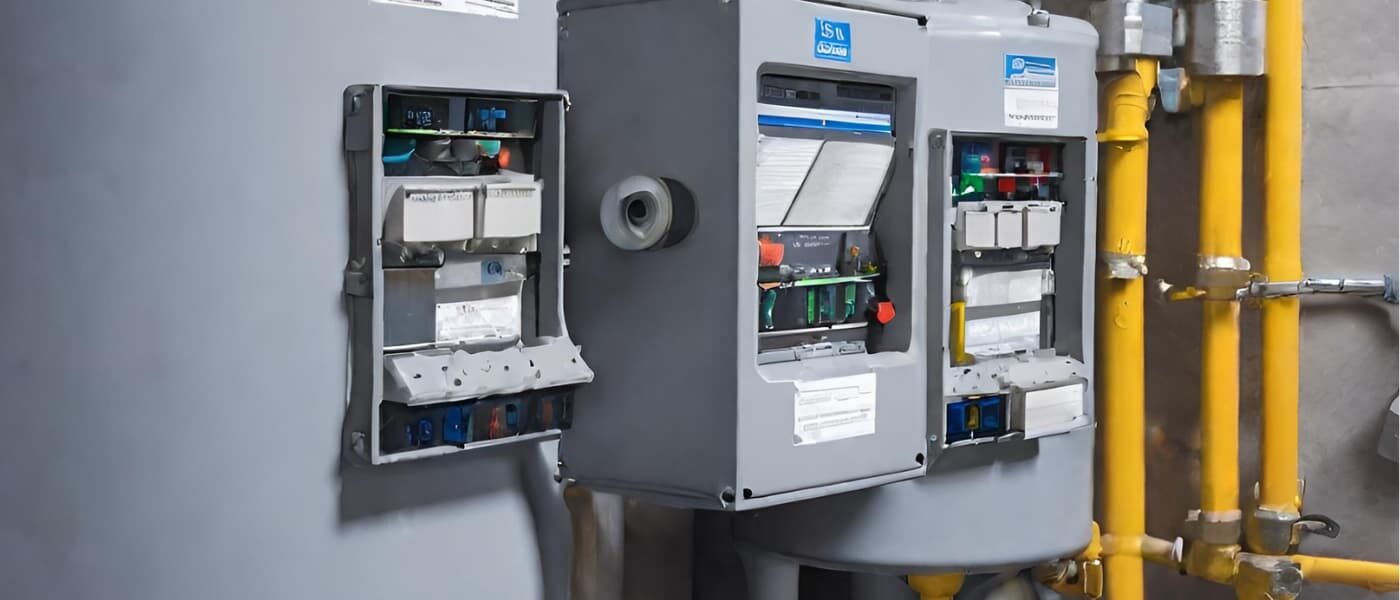We’ll explore the inner workings of these actuators and discuss their advantages and applications. In particular, we will shine a spotlight on KMC valve actuators and Johnson Controls valve actuators, trusted names in the field of industrial and building automation.
Valve Actuators: What Are They?
Before diving into the specifics of different types of valve actuators, it’s essential to understand their fundamental role. Valve actuators are devices designed to control the opening and closing of valves. Valves, in turn, are essential components in various systems, responsible for regulating the flow of liquids or gases. Valve actuators act as the driving force that moves valve components, allowing for precise control and automation.
Valve actuators find applications across a wide range of industries, from oil and gas to HVAC, water treatment, and manufacturing. They are the linchpin that enables the precise management of fluid flow, ensuring operational efficiency and safety.
Electric Valve Actuators
Electric valve actuators rely on electric motors to control valve movement. They offer several advantages, including:
- Precise Control: Electric actuators allow for accurate and repeatable positioning, making them ideal for applications that require fine-tuned control.
- Automation Capabilities: They can be easily integrated into control systems, enabling automation and remote operation.
- Versatility: Electric actuators can be used in a wide range of applications, from HVAC systems to industrial processes.
Electric valve actuators, such as those offered by KMC, provide a high level of precision and reliability. They excel in applications where precise control is critical. For example, in the HVAC industry, KMC electric valve actuators are trusted for maintaining the optimal temperature and airflow in commercial buildings, ensuring occupant comfort and energy efficiency.
Pneumatic Valve Actuators
Pneumatic valve actuators utilize compressed air or gas to operate valves. They are favored for applications that require:
- Rapid Response: Pneumatic actuators can quickly open or close valves, making them suitable for processes that demand rapid adjustments.
- Simplicity: Pneumatic actuators are known for their straightforward design and ease of maintenance.
- Suitability for Hazardous Environments: Pneumatic actuators are often chosen for environments where electrical equipment may pose a safety risk.
In industrial settings, where processes require rapid adjustments, Johnson Controls valve actuators, which include pneumatic options, play a crucial role. These actuators are known for their durability and reliability, making them a preferred choice for critical applications where safety and efficiency are paramount.
Hydraulic Valve Actuators
Hydraulic valve actuators use pressurized hydraulic fluid to move valves. They are known for their:
- High Force Capabilities: Hydraulic actuators can generate substantial force, making them suitable for heavy-duty applications that require precise control over large valves.
- Durability: They are robust and can withstand harsh operating conditions, including extreme temperatures and corrosive environments.
Hydraulic valve actuators find applications in industries such as manufacturing, where heavy machinery requires precise control over various processes.
Comparing Electric, Pneumatic, and Hydraulic Actuators
When choosing a valve actuator, it’s crucial to consider factors such as precision, speed, power, and suitability for the specific application. Electric actuators excel in applications that require precision and automation. Pneumatic actuators are ideal for rapid response and hazardous environments, while hydraulic actuators are the go-to choice for heavy-duty tasks.
For example, in a manufacturing facility where large industrial valves need precise control, hydraulic valve actuators are often chosen for their high force capabilities. These actuators ensure that critical processes operate with precision and reliability.
KMC Valve Actuators: A Trusted Solution
KMC valve actuators are synonymous with quality and reliability. They have a proven track record in various applications, from HVAC control in commercial buildings to specialized industrial processes. KMC’s commitment to precision and performance makes them a trusted choice for valve actuation needs.
Johnson Controls Valve Actuators: Precision and Performance
Johnson Controls valve actuators are engineered to meet the diverse needs of industries. Their reputation for precision and performance extends across a wide spectrum of applications, from critical HVAC systems to industrial automation. Johnson Controls is synonymous with reliable and efficient valve actuation.
Making the Right Choice
Selecting the right valve actuator type for a specific application is a critical decision. Factors such as control requirements, environmental conditions, and system compatibility should all be considered. Consulting with experts and manufacturers like KMC and Johnson Controls can provide valuable insights to ensure the right choice is made.
Conclusion
In the world of fluid control and automation, valve actuators are the unsung heroes that enable precise and efficient operation. Whether electric, pneumatic, or hydraulic, each type of actuator has its strengths and ideal applications. KMC valve actuators and Johnson Controls valve actuators, with their precision, performance, and reliability, stand as trusted solutions in various industries. As technology continues to advance, these components will continue to play a vital role in the seamless operation of critical systems across the globe.
